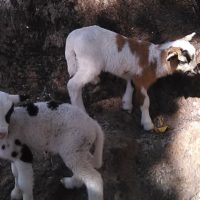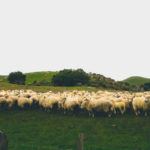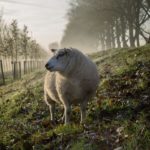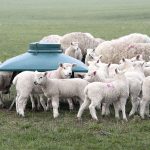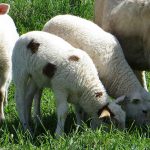There are 2 sorts of concentrate feeds: carbonaceous and proteinaceous. Carbonaceous concentrates or “energy” feeds are high in total digestible nutrients (TDN), however have a tendency to be low in protein (8-eleven p.c protein). The most common energy feeds are cereal grains: corn, barley, wheat, oats, milo (grain sorghum), and rye.
It is not necessary to method grains (grind, crack, roll, or crimp) for sheep aside from lambs that are less than six weeks old and lack a functioning rumen. In truth, whole grain diets are healthier for the rumen as a result of they require the animal to try to to its own grinding of the feed. Whole, uncooked soybeans may also be fed to sheep.
Whereas cereal grains are the most concentrated supply of energy, they are high in phosphorus and low in calcium. Feeding a diet that is high in phosphorus and low in calcium will cause urinary calculi in wethers and intact males. Inadequate calcium will lead to exploit fever in pregnant or lactating ewes.
Excessive intake of grain or sudden intake of grain will cause various digestive and metabolic issues in sheep and lambs, including enterotoxemia (overeating disease), acidosis (grain overload), feedlot bloat, and polioencephalomalacia. The rumen always wants time to adjust to a higher concentrate diet.
Energy feeds
| Feedstuff | Percent TDN |
| Whole cottonseed | 91 |
| Wheat middlings | 90 |
| Corn grain | 89 |
| Wheat grain | 89 |
| Milo (grain sorghum) | 89 |
| Barley grain | 84 |
| Corn gluten feed | 83 |
| Ear corn | 82 |
| Rye grain | 81 |
| Soybean hulls | 77 |
| Molasses | 75 |
| Beet pulp pellets | 74 |
| Oat grain | 74 |

